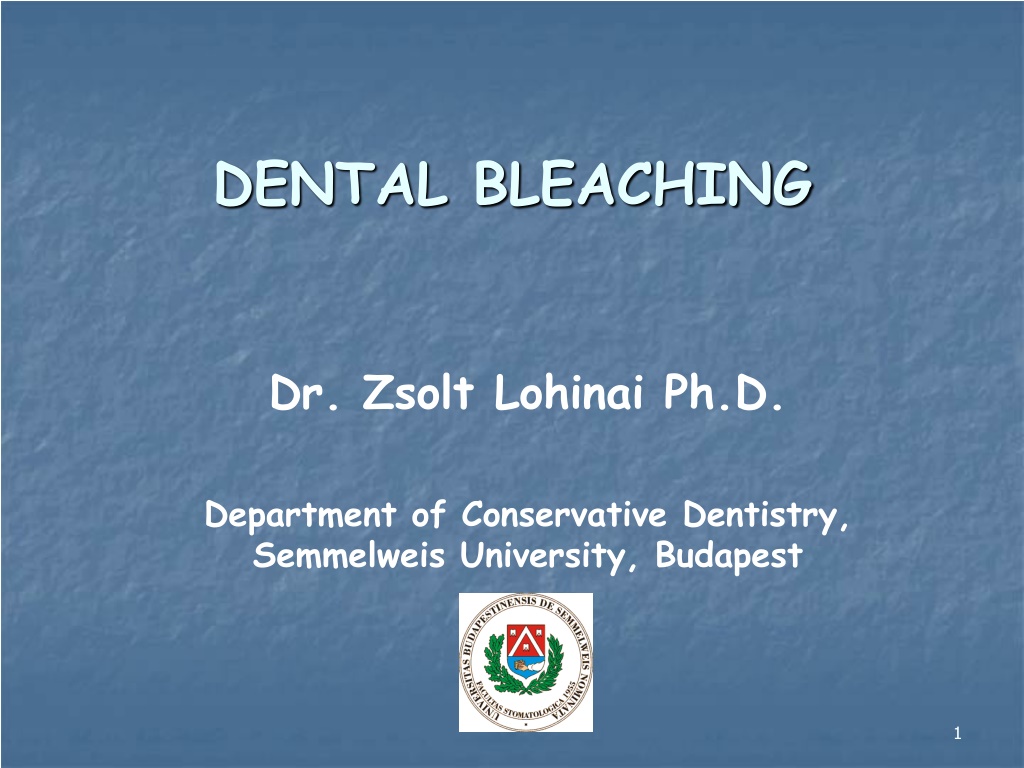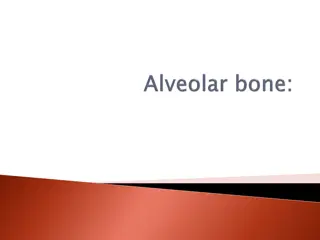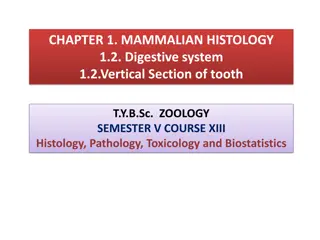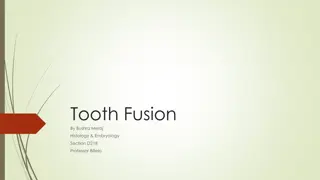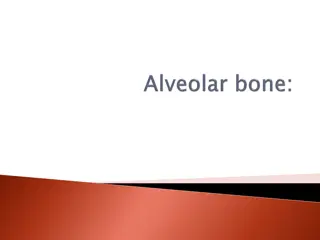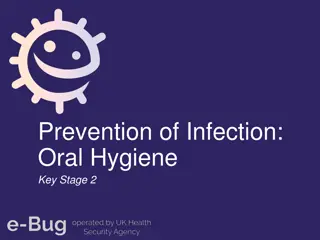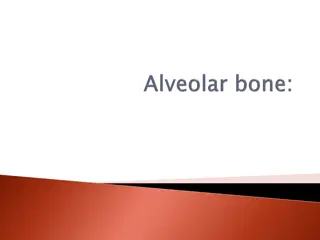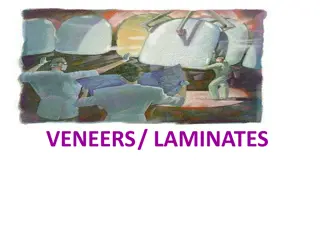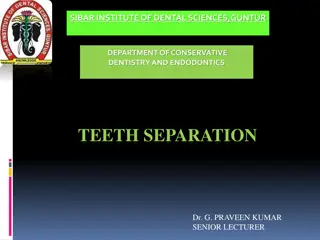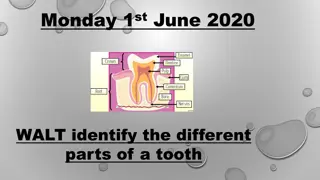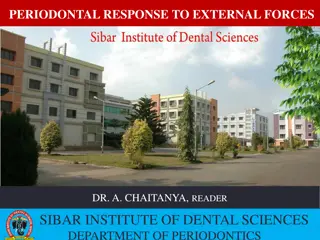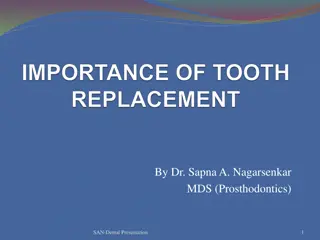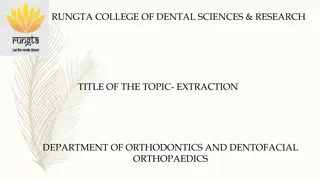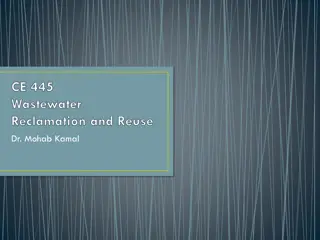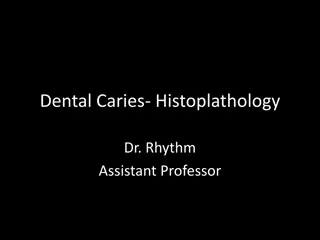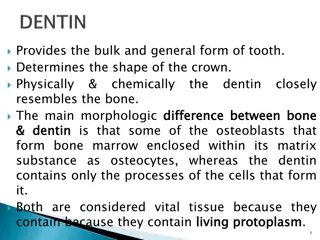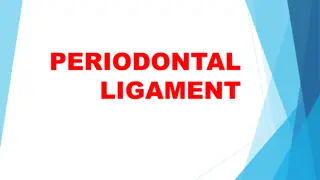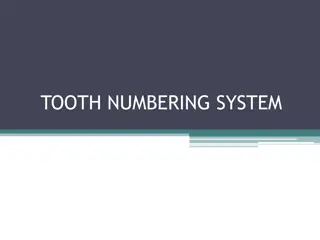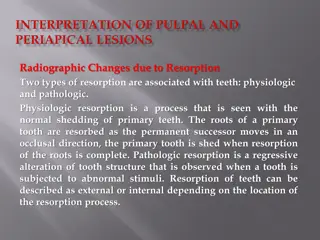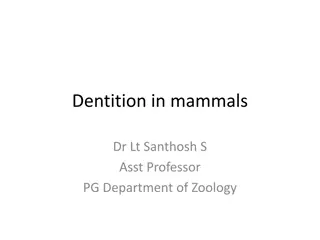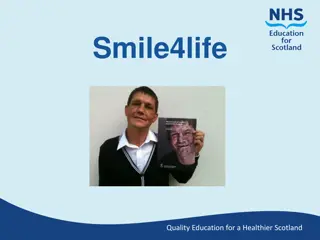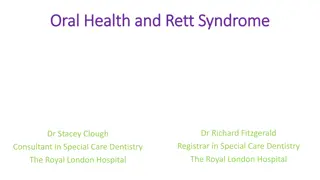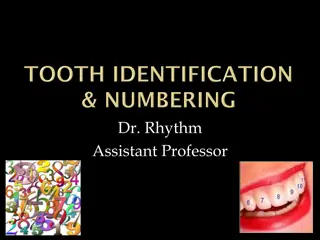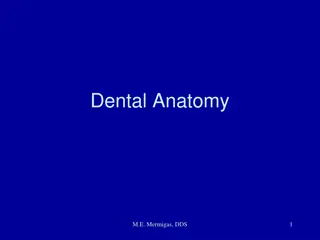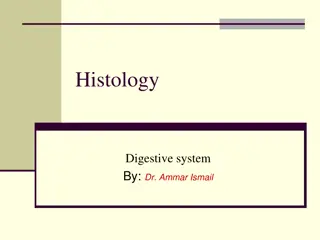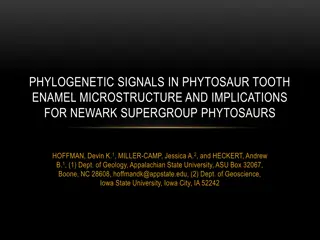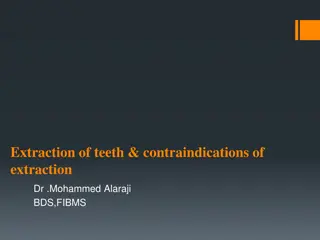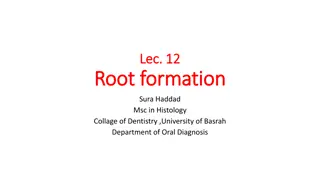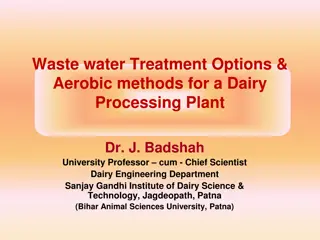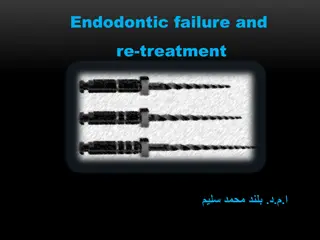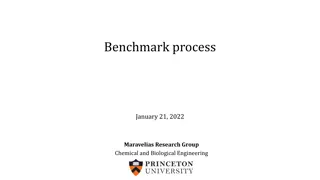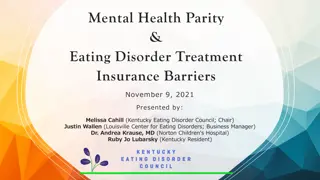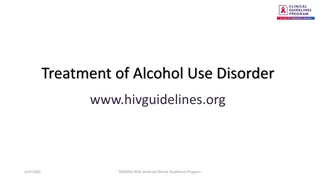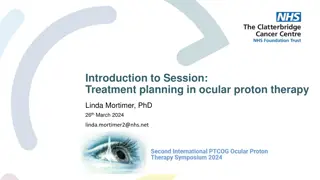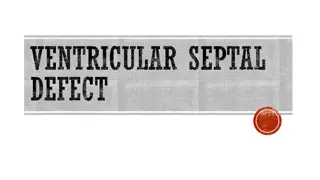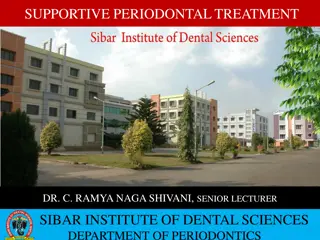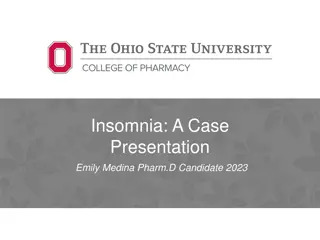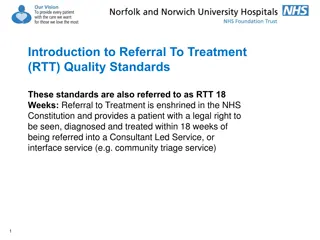Understanding Tooth Discolorations and Treatment Options
Explore the causes of tooth discolorations, including both exogenous and endogenous factors, along with the effects of age and various dental conditions. Learn about the importance of tooth shade genuineness and the demand for teeth whitening for improved aesthetics and self-confidence. Discover the treatment options available for tooth discolorations, such as professional teeth cleaning, whitening procedures, and different types of veneers and crowns.
Download Presentation

Please find below an Image/Link to download the presentation.
The content on the website is provided AS IS for your information and personal use only. It may not be sold, licensed, or shared on other websites without obtaining consent from the author. Download presentation by click this link. If you encounter any issues during the download, it is possible that the publisher has removed the file from their server.
E N D
Presentation Transcript
DENTAL BLEACHING Dr. Zsolt Lohinai Ph.D. Department of Conservative Dentistry, Semmelweis University, Budapest 1
GROWING DEMANDS Health, neatness Youth, eternal youth Self-confidence, self-esteem White teeth 2
Genuine tooth shade Teeth color changes in accordance with the location and thickness of enamel and dentin within a tooth as well. Enamel/dentine rate decreases with age. The colors of different teeth are not the same in a mouth, the canines are usually darker. Depending on localization of discolouration internal and external discolorations are differentiated. Poor oral hygiene. 3
Etiology of tooth discolourations Exogenous factors: 4
CAUSES OF DISCOLORATIONS Endogenous factors I.: During development Structural abnormalities: amelogenesis imperfecta, enamel hypoplasia, enamel hipokalcifik ci , dentinogenesis imperfecta. 5
CAUSES OF DISCOLORATIONS Endogenous factors II.: Systemic drugs: tetracycline before the age of 8, excessive fluoride intake. Systemic diseases: erythroblastosis fetalis, thalassemia, hyperbilirubinemia, porphyria (erythrodontia) alkaptonuria. 6
CAUSES OF DISCOLOURATIONS Endogenous factors III.: After the eruption: Age Tertier dentin, calcific metamorphosis Tooth decay Trauma Pulp necrosis, Internal resorption Iatrogenic: amalgam fillings, metal posts, inadequate root canal treatment 7
TOOTH DISCOLORATIONS white fluorosis yellow: light age, fluorosis, tetracycline dark age, tetracycline, necrosis brown fluorosis, porphyria, tetracycline, caries, necrosis blue-gray dentinog. imp., erythrobl. fet. black caries, fluorosis, amalgam pink internal/external resorption, trauma 8
Treatment of tooth discolorations Professional teeth cleaning, polishing Microabration Teeth whitening Direct composite veneer Ceramic veneer Ceramic crowns 9
Indications of teeth whitening Patient is dissatisfied with his/her own tooth color. Metal-free restoration is planned on discolored tooth/teeth. 10
Contraindications of teeth whitening Absolute: Severe tooth malformations, deep micro cracks, too broad pulp chamber. Allergy to any of the whitening substances used. Light intolerancy (only for photocatalytic methods). Psychologically unstable, having excessive expectations, not cooperative patients. Transitional: Teeth are being treated by conservative/orthodontic dental care. Gingival pathology. Taking photoreactive medicine. Pregnancy, during lactation. 11
Tooth whitening timeline Initial attempts at bleaching 1877 Chapple oxalic acid Modern bleaching techniques 1918 Abbot superoxol and heat Non-vital bleaching 1967 Nutting and Poe walking bleach Modern techniques 1989 Munro nightguard vital bleaching
Bleaching agents in practice I. Materials containing hydrogen peroxide: Hydrogen peroxide (H2O2) Carbamide peroxide (CH4N2O*H2O2) Sodium perborate (NaBO3*4H2O) Sodium percarbonate (2Na2CO3*3H2O2) 13
Bleaching agents in practice II. Hydrogen peroxide-free materials: Titanium dioxide (TiO2) Chlorine dioxide (ClO2) Ozone (O3) New developments Combinations 14
Mechanism of action The released free radicals by oxidation of unsaturated double bonds of the color pigments causing their fading and etiolation respectively. 15
Bleaching techniques Whitening of vital and non-vital teeth At-home At-home In-office In the dental office - highly concentrated products - power bleaching - internal and external bleaching At-home - OTC products - without dentist supervision - external bleaching At-home - professional products - dentist supervision - external bleaching
Types of teeth whitening methods Vitality point of view: Living tooth (external) RCT tooth (internal) Place of execution: In office At home, but directed by a dentist, combined Activation mechanism: Chemical Thermocatalytic Photocatalytic Photothermic Photochemical Ultrasonic 17
NEW REGULATIONS < 6 % Hydrogen peroxide!!!! 18
VITAL TEETH BLEACHING IN OFFICE 1. Medical/dental history, patient examination, dg, treatment plan. 2. Extensive information about treatment. 3. Photodocumentation of teeth color. 4. Professional teeth cleaning, dental treatments. 5. Precise isolation of soft tissues. 6. Bleaching material preparation, application to the teeth. 7. Illumination. 8. Repeat of 6. and 7. according to manufacturer's instructions. 9. Reducing tooth neck sensitivity. 10. Information, photos taking. 19
VITAL TEETH BLEACHING AT HOME Reduces time spent in the office, cost-effective. Degree of whitening can be adjusted. Complete the in office treatment, for color retention. Selective whitening. BUT: Gradual whitening is less noticeable. Slower. Patient is responsible for execution. 20
BLEACHING OF ROOT CANAL TREATED TEETH 21
SIDE EFFECTS 22
Tips During the treatment interval avoid
Final thoughts Many whitening options are available. Accurate history, correct design and implementation are essential. Compliance with existing regulations makes bleaching safer, however, reduces the effectivity of the bleaching substances! Large transformation: new products and techniques are expected. 24
Thank you for your attention! Lohinai.Zsolt@dent.semmelweis-univ.hu 25
